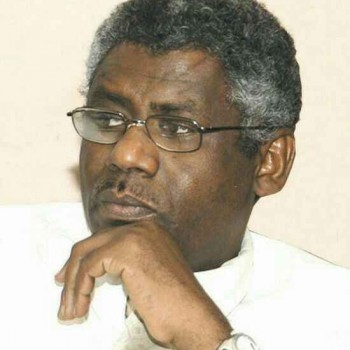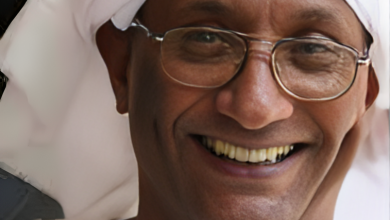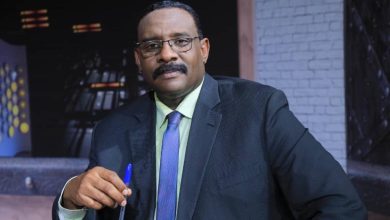A Mission to Fabricate Facts!!

As I See it
Adil Elbaz
1
The Human Rights Council in Geneva issued a resolution on Wednesday, 11 October 2023, to monitor human rights violations in Sudan and form a committee of three experts whose identities are unknown. Britain, Germany, Norway, and the United States had called on the Human Rights Council to form a mission to ascertain the facts, consisting of three individuals. British Ambassador to Geneva, Simon Manley, told the Associated Press, “Reports indicate the most heinous violations and abuses ever by the parties to this unnecessary conflict.” He added, “The fact-finding mission is partly aimed at identifying those responsible for human rights violations and abuses, hoping to hold the perpetrators accountable someday.”
After the decision to form this committee was issued, despite the significant uproar it caused, I noticed that essential questions about this decision were overlooked and absent from the debate. Why did these three countries, in particular, seek to mobilise the Human Rights Council to make this decision in the name of justice for the victims, for example?
Secondly, The preamble of the decision was bypassed, and the discussion focused on the decision itself, which clearly reveals its hidden agenda and the indicators that will guide the subsequent fact-finding process.
Thirdly, what are the objectives that this committee aims to achieve?
2
The British stance is known for its collusion with the Janjaweed. Since the early days of the war, Britain called on the Security Council to adopt a resolution to stop the war, altogether avoiding any condemnation of the rebels. It was the first to seek to internationalise the Sudanese issue through eight attempts, and it worked to mobilise the regional organisations to take a stance in favour of the Janjaweed by adopting the same British agenda, calling for an unconditional end to the war. The position of the African Union was in harmony with the British agenda or the Troika’s, which these countries led.
3
So, British diplomacy has consistently advocated for ending the war in favour of the Janjaweed from the beginning until the Human Rights Council resolution was issued. The British position may seem strange, but by examining British positions since the drafting of the invitation for the UN mission to Sudan and its support for the Freedom and Change Alliance (FCA) throughout its rule, and even its stance on the coup and its support for the Lawyers’ Workshop, and its support for the Framework Agreement catastrophe… it becomes clear that its approach aligns with these accumulated positions. With this overt strategy, it seeks to consolidate its influence in Sudanese decision-making circles and regain its old influence by infiltrating the political scene with new allies ready to serve its goals.
4
The Janjaweed Empire gang (Molly in Wadi Victor Land / and Ambassador Godfrey) shaped the American stance on the war, which took hostile positions against the armed forces, refused to condemn the rebellion, and rushed to condemn the coup on October 25, 2021.
Even though the Janjaweed Empire was the one who created the Jeddah platform and imposed it on the Sudanese army, they failed to compel the rebels to implement what the militia had signed in the Jeddah agreement. At the same time, the Janjaweed Empire continued to pressure regional organisations to adopt a supportive position for the Janjaweed. This is the same group that drafted what is known as the “De-escalation Plan,” which calls for an immediate end to the war, despite the Janjaweed’s occupation of civilians’ homes and public facilities and the genocide that occurred in Dar Al-Masalit.
Notably, when this conspiratorial Troika failed to gain support for its plans in the Security Council and was thwarted by Sudan in Africa, it quickly turned to rallying countries to support its agenda in the Human Rights Council. Most countries that supported the resolution are not particularly relevant to Sudan, and some may not even know where Sudan is on the world map, while most Arab, African, and Islamic countries stood by Sudan. The stance of South Africa, which has consistently recorded favourable positions on Sudanese issues for a long time, was bizarre.
5
The not surprising position is that of Norway, which consistently acts as a permanent appendage in the Troika system, continuously following the policies of Britain and the United States. Norway has consistently supported every rebel against the Sudanese state, from Qoranq to Darfur movements to Hemeti. It is always the main financier of all opposition activities and recently endorsed a meeting of a dubious civil group seeking to impose its agenda on Sudan.
6
Examining the preambles of UN resolutions is vital to uncover hidden agendas in the resolutions. The preambles may be long and tedious, but they are highly dangerous. Each paragraph in the resolution’s preamble equates the parties it labels as conflicting, meaning there are no rebels against the state.Then, from paragraph 9 to paragraph 23, the preamble refers to violations against civilians, diplomatic missions, and journalists. However, it fails to name the party responsible for all these crimes, specifically, the Janjaweed militia condemned by all international organizations for these violations.
The Human Rights Council knows who the criminals are but prefers to cover them with such deceptive phrases to avoid condemning the Janjaweed militia, supported by the same countries that requested the fact-finding mission as if its identity is unknown.
Referring to the obscure relationship between the International Criminal Court and the three countries that requested the fact-finding committee, it becomes clear that the idea of the fact-finding committee is a large trap. Its purpose is to set the stage for an operation concealed under the guise of seeking the truth, followed by creating a booby-trapped report, which will be deviously handed over to the court, taking advantage of their ability to move throughout the country. The report will then be referred to the International Criminal Court through the Security Council or the United Nations.
For this reason alone, the FCA’s Central Council welcomed the fact-finding committee to investigate the violations during the war. The speakers, on behalf of the Janjaweed, also welcomed the decision of the fact-finding committee. The committee’s contractors, supporters of FCA and her allies from the Janjaweed, who control her composition and agenda, will do the impossible to improve the image of the Janjaweed before the international community by buying the loyalties of committee members. They have also engaged in corrupt dealings with regional organisations.
7
One of the objectives is to hinder the current activities of the International Criminal Court, which has already begun investigating the genocide committed by the militias against the Masalit. It aims to cover up all the crimes of the Janjaweed and avoid significant international condemnation. This unidentified committee will walk the crooked path of the deceptive preamble, and it is well-known how committees are subjected to pressure, temptations, and bribes, as the United Nations’ records are filled with stories of corrupt missions in Iraq, Afghanistan, and elsewhere.
8
The position of the Sudanese government, which voted against the resolution, may evolve later depending on developments, as the ongoing international conspiracy against it makes the results of this mission doubtful and requires caution. The army may manipulate this committee in later stages by rejecting the membership of any suspicious individuals within its composition or rejecting their entry into the country altogether.
9
God has decreed that the conspirators’ contradictions be exposed after the Al-Aqsa Storm and the brutal Zionist response seeking to exterminate Gaza’s fighters. The conspirators did not rush to call for a ceasefire but sent their warships to pour more fire on the heads of Gaza’s people. The Human Rights Council did not announce a fact-finding mission!! How many fact-finding committees has the Security Council established, ridiculed by Israel, scorned its members, and expelled them from the occupied territories?



